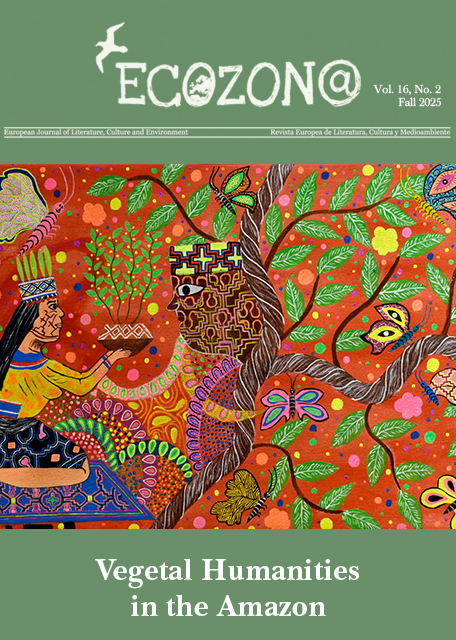Ecocriticism in Poland: Then and Now
DOI:
https://doi.org/10.37536/ECOZONA.2020.11.2.3553Parole chiave:
Ecocriticism, animal studies, history of ecocriticism, Polish ecocriticism, comparative ecocriticism, empirical ecocriticism, new materialismAbstract
The aim of this paper is to present a synoptic picture of the development and current state of ecocriticism in Poland. Understood in the generic sense of the study of literature and environment, ecocriticism had begun in Poland already in 1970s and has since then generated its own original tradition. Understood in the specific historical sense of a field devoted to the study of literature and environment that was consolidated in the 1990s in the USA and the UK and has then expanded both in disciplinary and national terms, ecocriticism was imported to Poland only in the beginning of the 21st century, but has managed do generate its own tradition as well. For a while, both these currents of Polish ecocriticism had run in parallel to one another, but have recently merged, stimulating new exciting developments. The paper will delineate these historical trajectories and recent developments alike. And it will also show how today’s Polish ecocriticism contributes to ecocriticism globally, not only by offering its own culturally unique perspective and archives, but also by proposing new methodologies, including so-called empirical ecocriticism, an emerging field that originates in part from Poland.
Downloads
##submission.downloads##
Pubblicato
Fascicolo
Sezione
Licenza
Authors who publish with this journal agree to the following terms:
a) Authors retain copyright and grant the journal right of first publication with the work simultaneously licensed under a Creative Commons Attribution License that allows others to share the work with an acknowledgement of the work's authorship and initial publication in this journal (CC BY-NC for articles and CC BY-NC-ND for creative work, unless author requests otherwise.
b) Authors are able to enter into separate, additional contractual arrangements for the non-exclusive distribution of the journal's published version of the work (e.g., post it to an institutional repository or publish it in a book), with an acknowledgement of its initial publication in this journal.
c) Authors are permitted and encouraged to post their work online (e.g., in institutional repositories or on their website) prior to and during the submission process, as it can lead to productive exchanges, as well as earlier and greater citation of published work (See The Effect of Open Access).










